Aligning your content with media coverage can drive high conversion rates because it influences search behavior and creates a funnel from media to search and through the website.
I’ve seen the best conversion rates and most qualified leads from SEO and content marketing when I coupled it with a digital PR strategy, creating these funnels.
Are SEO and content marketing part of your marketing mix? Do you see low conversion rates? Is your SEO program just failing to achieve business results or simple conversions?
Then, these three ways to optimize funnels can change the success trajectory of your entire program by creating a PR & SEO funnel.
Article overview:
- Integrated digital PR and SEO: Combining digital PR with SEO boosts conversion rates by ensuring consistent messaging that guides customers from media exposure to website engagement and conversion.
- Funnel optimization strategies: I describe three methods to enhance SEO through content: 1.) Branded reports that attract media coverage and drive web traffic. 2.) Guides in new market categories to dominate search rankings and establish market leadership. 3.) Feature articles that trigger brand searches and optimize homepage messaging to convert traffic.
- Success case studies: This article will highlight effective examples like HubSpot’s annual marketing report and Drift’s conversational marketing platform, showing how targeted content and strategic media coverage can significantly increase traffic and conversions. I also mention Sweetgreen’s strategic use of media stories to align with homepage updates that improve brand search funnels.
Before diving into case studies, it’s important to understand why and how digital PR & SEO work together.
Why Create A PR & SEO Funnel
Marq’s Brand Consistency report found that 68% of businesses said brand message consistency contributed to revenue growth by 10% to 20% or more.
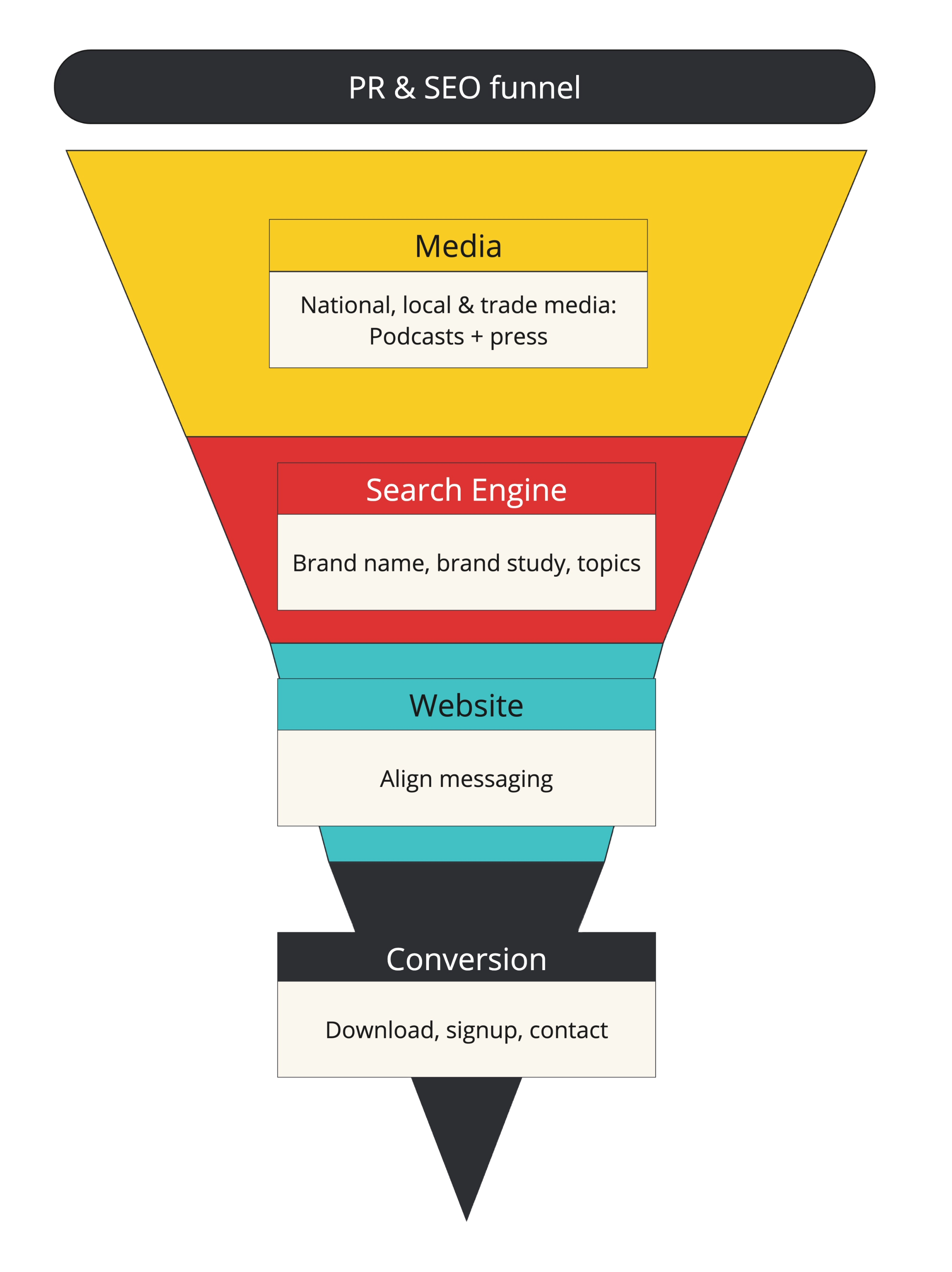 Image created by author, May 2024
Image created by author, May 2024Optimizing content for digital PR creates consistent messaging to nudge the audience from the media, through search engines, to specific web pages, and finally to conversion.
The media is at the top of the funnel, and you use media to drive demand and interest in an idea.
For example, create an industry trend report that identifies an opportunity or a major pain point for an audience. Media loves data, so use these reports to gain media coverage.
The coverage then drives searches for keywords your website owns. These can be the company or product brand name, a new concept, or just keywords you dominate for.
Keywords you own create a much higher click-through rate (CTR) than other keywords.
For brand keywords, a site can get up to a 60% CTR. An audience searching for these keywords tends to be more willing to submit an email to get a document or contact.
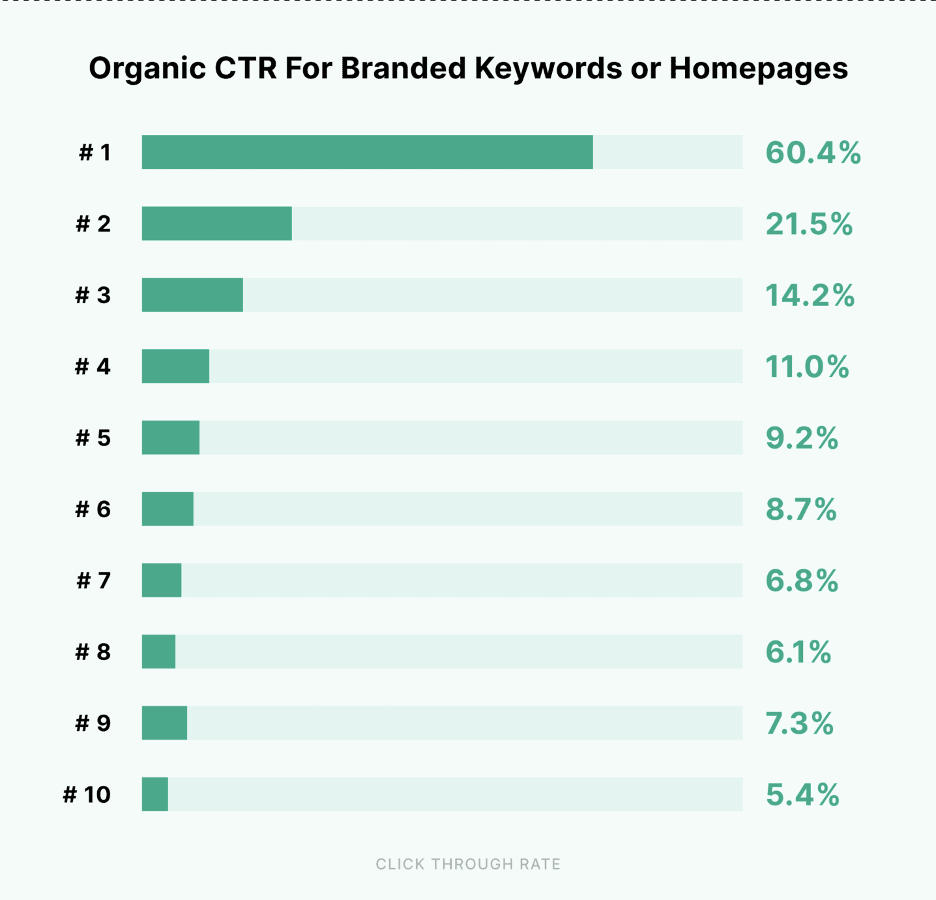 Image from Backlinko, May 2024
Image from Backlinko, May 2024Instead of telling you how to optimize content for these funnels, let’s look at some examples.
These are three ways to optimize content that will change the way you do SEO.
1. Branded Reports For Data Shares
Create a funnel from your data by optimizing the report’s name and using it in a digital PR data campaign.
This approach creates a funnel from media through search engines to website conversion by owning your “state of industry” report or creating a study with its own brand name.
The audience will often read about the report in the media, on a blog, or hear about it referenced on a podcast, then search for it in Google or click the report link.
HubSpot and Conductor create two reports that garner some attention.
HubSpot’s State Of Marketing
HubSpot creates a “State of Marketing” report each year that gains a significant number of links and brand mentions.
The report covers a wide range of topics and trends in marketing that can impact marketers’ decisions, ideally affecting everything from how to use AI to which social channels produce the best ROI.
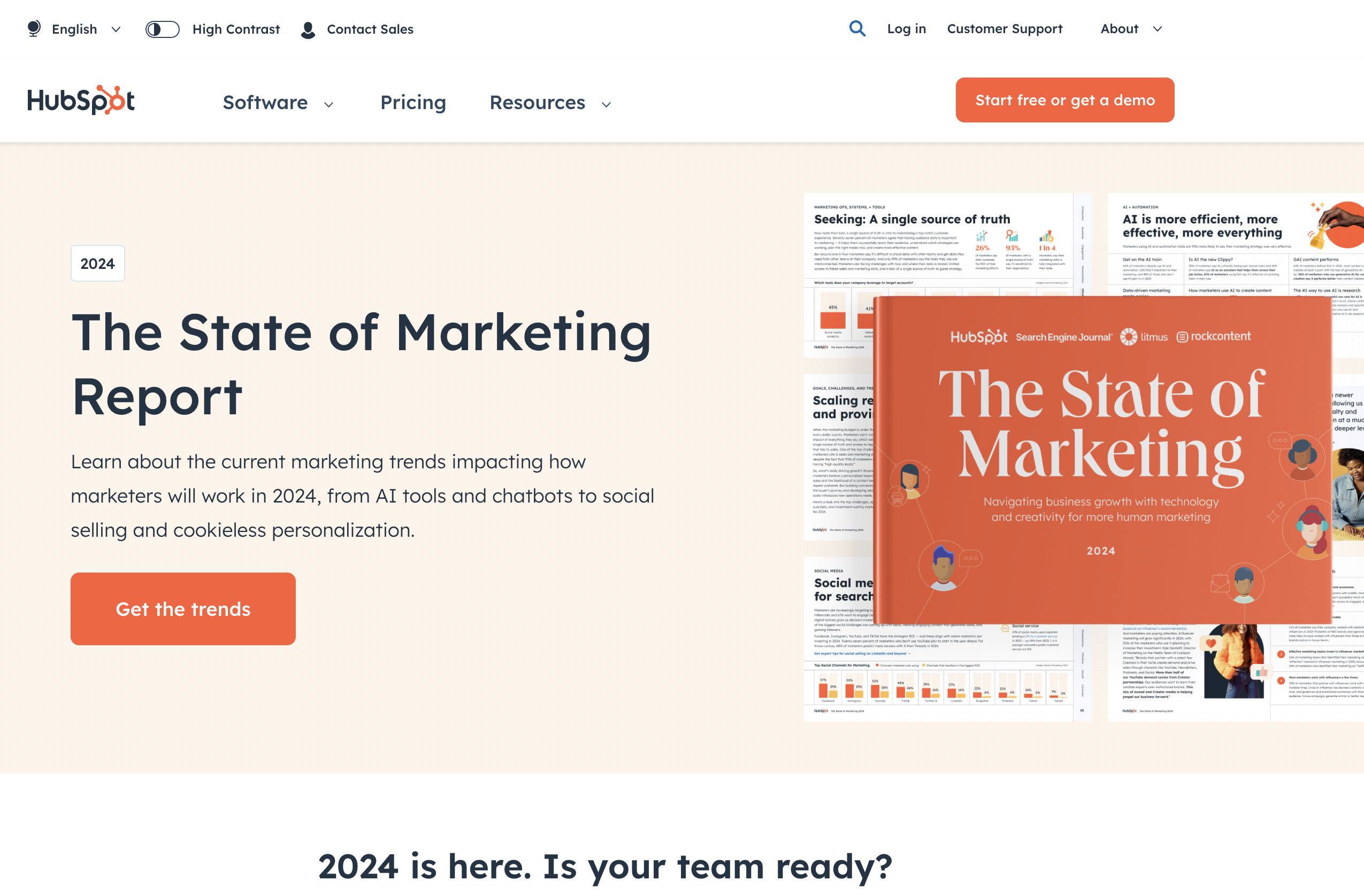 Screenshot by author, May 2024
Screenshot by author, May 2024According to Semrush, the report URL generated links from 7,400 referring domains. A quick Google search for the search operator “hubspot” and “state of marketing” –hubspot.com uncovered a significant number of brand mentions in the report.
Brand mentions of the report names can drive the audience to search for the report on Google and then download it from the website. This is a simple but effective funnel.
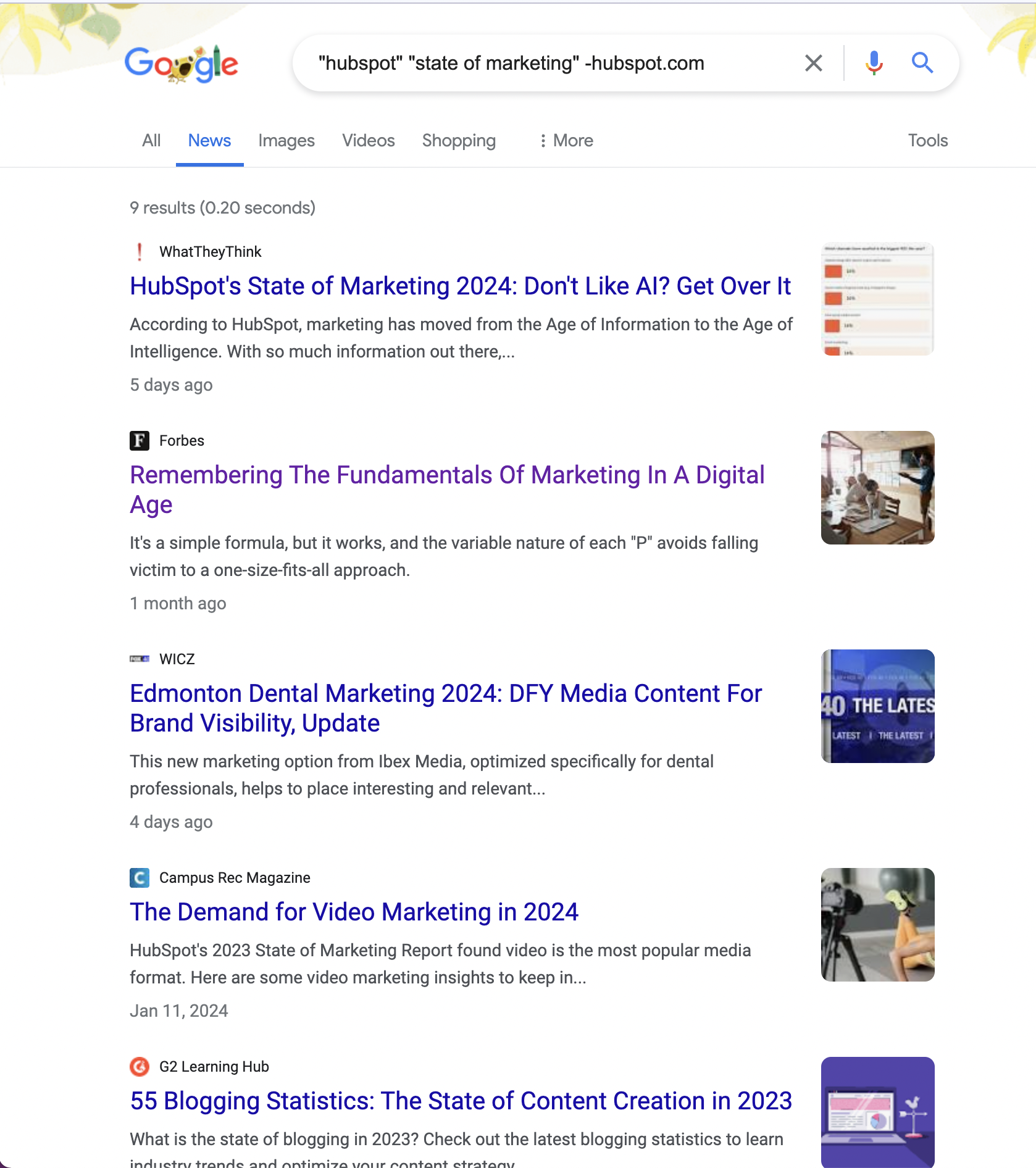 Screenshot by author, May 2024
Screenshot by author, May 2024Conductor’s State Of SEO
Conductor, an enterprise SEO software, has a “State of SEO” report that surveyed over 400 digital marketing, SEO, and content marketing experts to identify actionable insights.
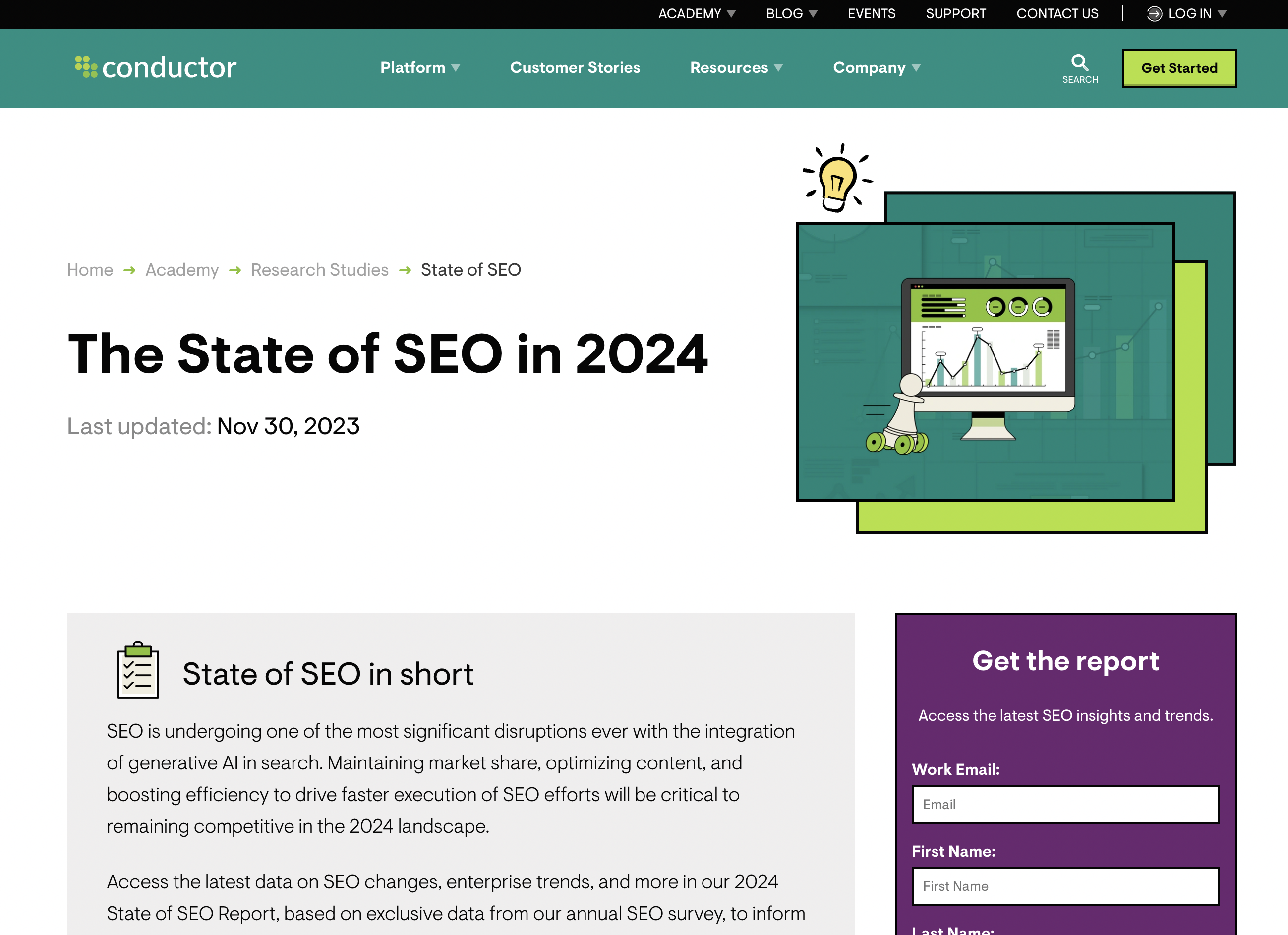 Screenshot by author, May 2024
Screenshot by author, May 2024Conductor’s report received a brand mention and a direct link on entrepreneur.com, which can create a click or brand search.
 Screenshot by author May 2024
Screenshot by author May 2024Branded studies are one of my favorite funnels, as the reports can be named and focused on a specific persona or audience segment.
2. Guides In A New Category
This is by far my favorite approach to integrated digital PR & SEO because it can make competition irrelevant.
“Category design” is a strategy that involves creating and leading your own new market category or strategy. This approach involves creating foundational training content to help your audience see and capitalize on the value of your approach.
The foundational content should rank in search engines for the category name, then use digital PR to drive demand and interest in the category.
Drift is a wildly successful example of this strategy.
Conversational Marketing By Drift
I use the Drift example of category design whenever I’m involved in a planning session to identify or design a new category.
Drift is essentially a chatbot. However, the product is marketed as a “conversational marketing” platform. Functionally, it tailors a chat experience on a website based on the stage of the buyer’s journey and qualifies the leads.
Drift created the category “conversational marketing” and positioned the company as a platform for a conversational marketing platform, as you can see from its main navigation.
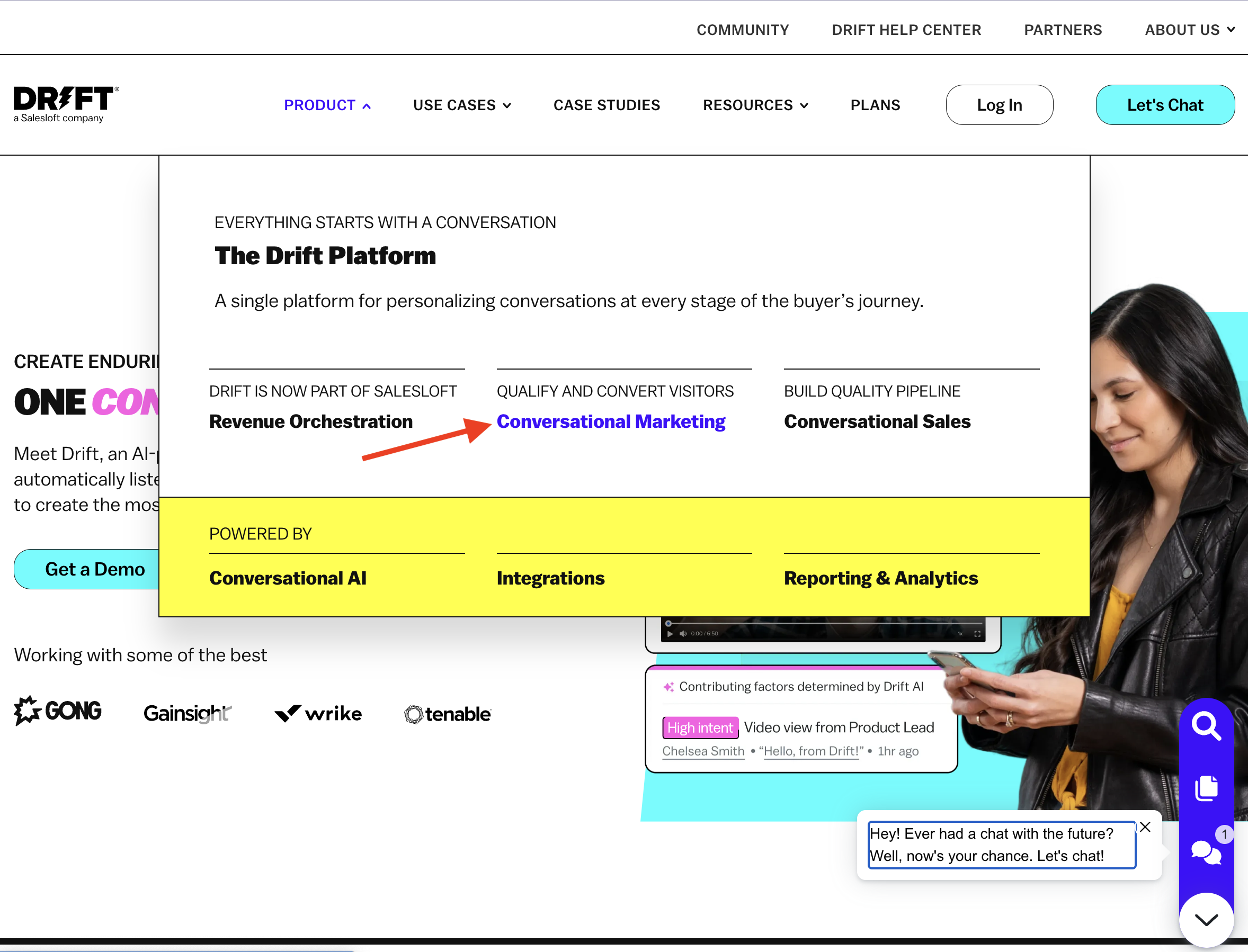 Screenshot by author, May 2024
Screenshot by author, May 2024Drift was founded in 2015 and, shortly after, started developing the “conversational marketing” category. A few years after the company’s launch, the audience started searching Google for the concept.
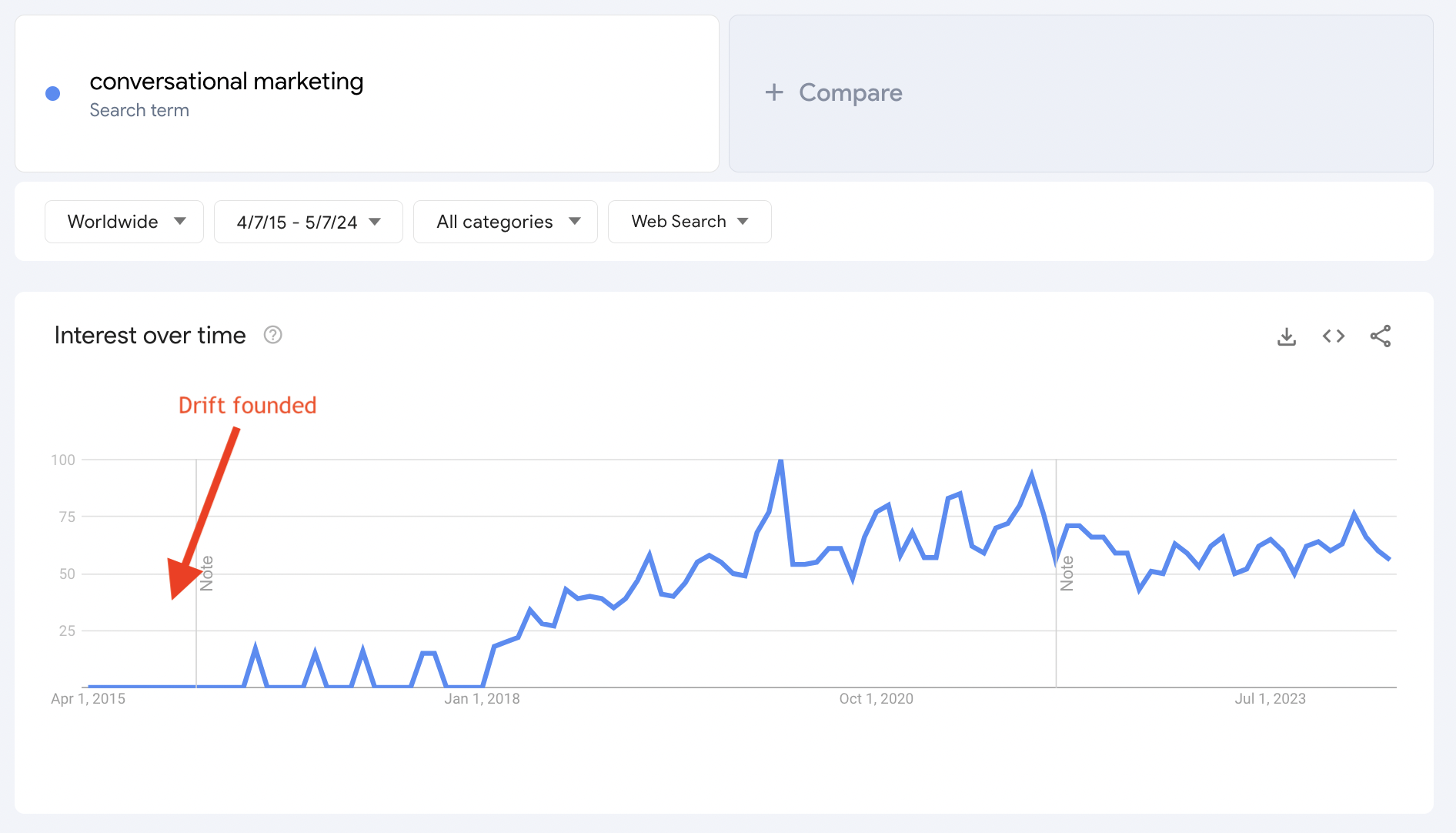 Screenshot from Google Trends, May 2024
Screenshot from Google Trends, May 2024Drift is still highly visible in Google for the term, ranking in the “What is Conversational Marketing” guide.
The launch of conversational marketing was so well executed that even HubSpot followed along and created a beginner’s guide, ranking just below Drift.
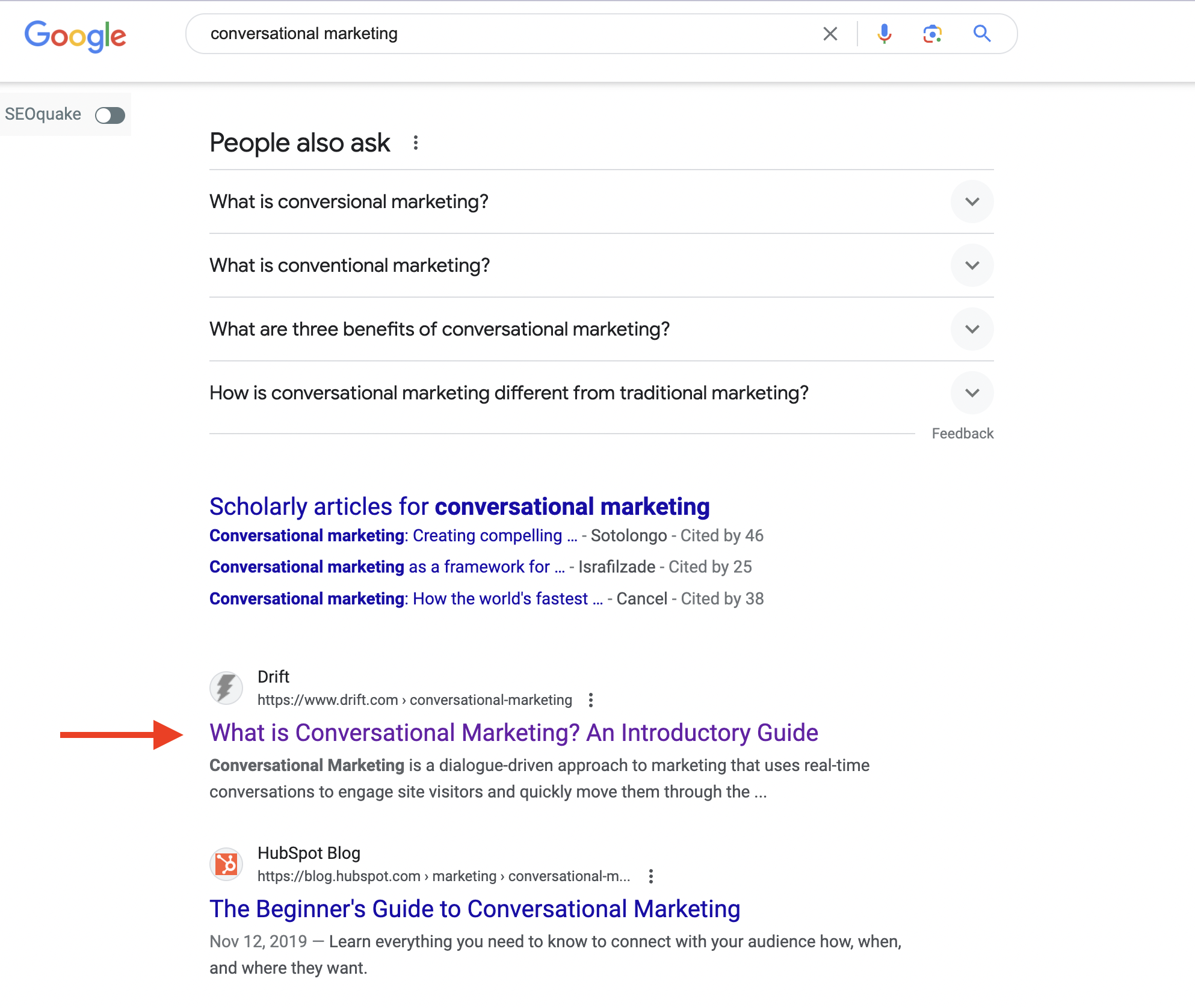 Screenshot from search for [conversational marketing], May 2024
Screenshot from search for [conversational marketing], May 2024If you’re creating a new category or trying to drive brand search for your company, create customer story funnels.
3. Homepage For Feature Articles
Feature articles can drive brand search spikes, and optimizing the homepage messaging can move the audience further down the funnel to take action on a website.
Sweetgreen, the fast-casual restaurant chain that serves salads, is a great example.
In early May, the New York Times and other publications published articles about Sweetgreen starting to offer steak. The angle was that Sweetgreen’s mission “committed to becoming carbon neutral by 2027” was at “steak” because the meat industry is a major producer of carbon.
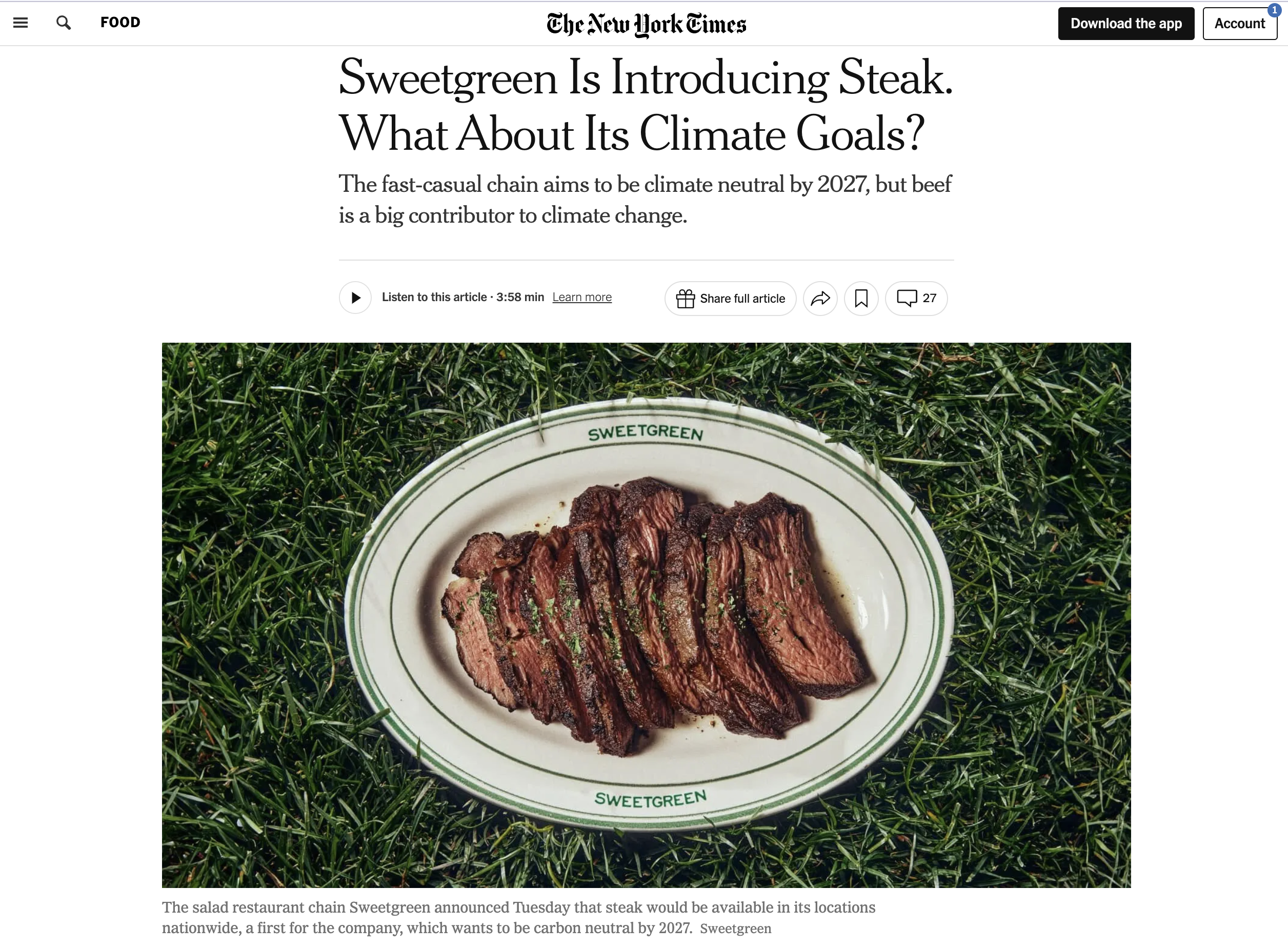 Screenshot by author, May 2024
Screenshot by author, May 2024The articles about Sweetgreen’s addition of steak to the menu caused Google Trends to show a significant 36% spike in search for the brand name around May 7th.
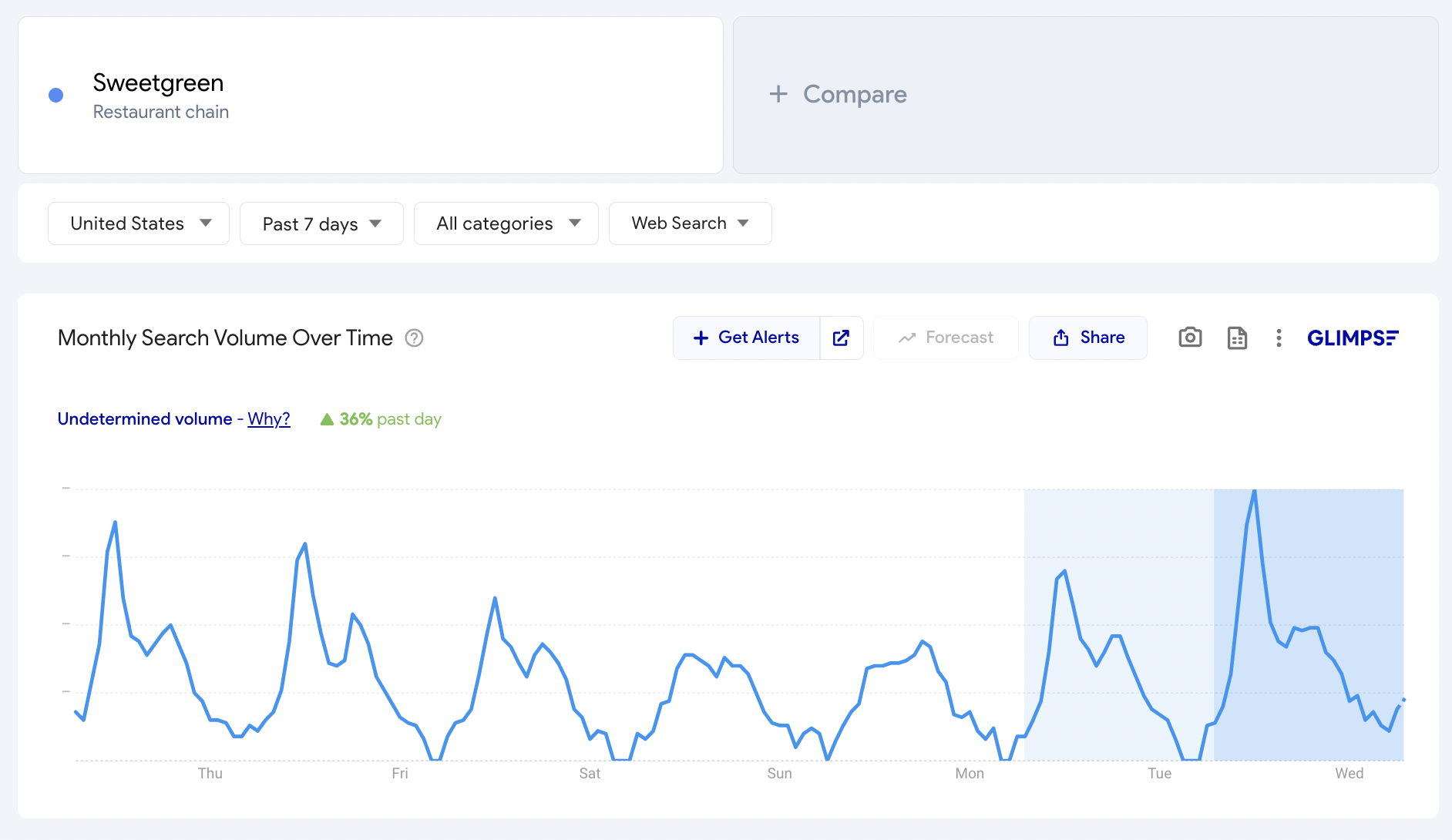 Screenshot from Google Trends, May 2024
Screenshot from Google Trends, May 2024When a given audience searches for a brand name, most will end up on the homepage. Have you ever noticed a spike in traffic and higher conversions from the homepage? Very often, this is a brand search.
Sweetgreen updated its homepage banner to show steak as the first image. This creates a cohesive messaging funnel for the audience, so they will either convert when they enter the site or improve their recollection of the new steak option.
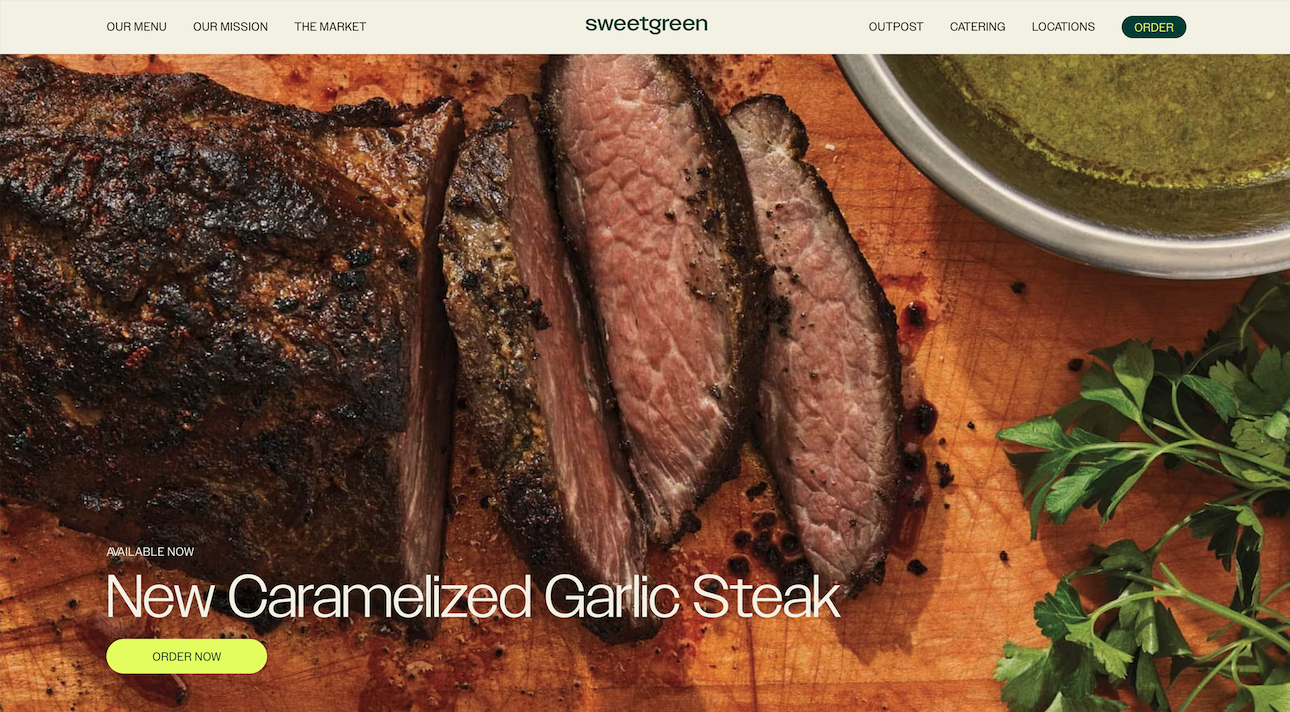 Screenshot by author,May 2024
Screenshot by author,May 2024Securing feature articles that align with the homepage messaging creates a powerful funnel as the audience searches the brand in search engines.
Start Optimizing
Digital PR with SEO can transform content marketing strategies, leading to enhanced visibility, higher traffic, and increased conversion rates.
A website can significantly influence audience behavior by aligning content with media coverage through branded reports, innovative category guides, and strategically placed feature articles.
The provided case studies underline the potential of these strategies to attract attention and drive meaningful engagement and growth.
More resources:
Featured Image: TarikVision/Shutterstock
